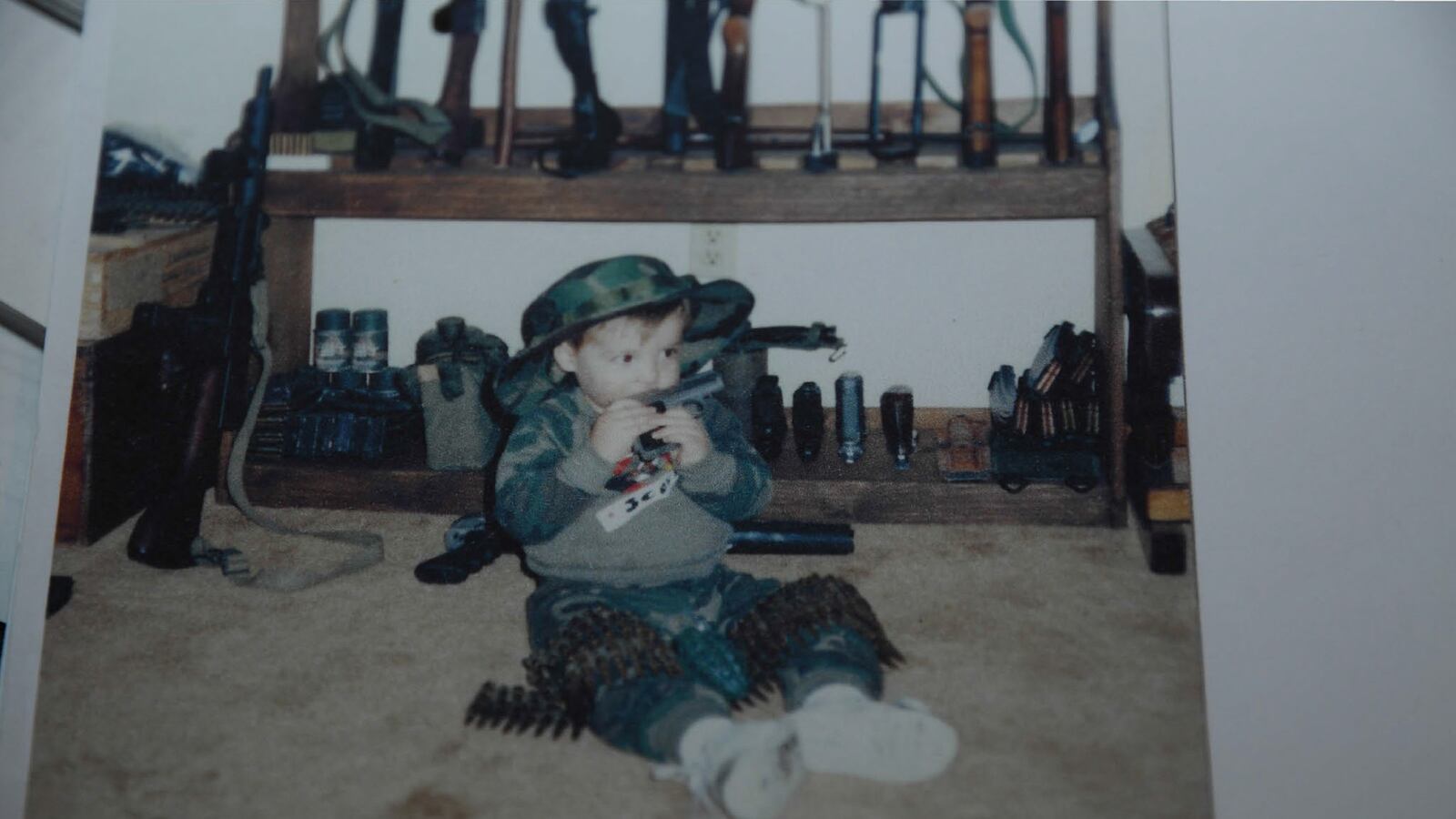From the thousands of documents, photos, and videotapes concerning the Sandy Hook massacre that the Connecticut State Police released on Friday comes this mental image:
Two detectives carefully cutting away the bloodied edges of artwork and school papers of murdered children so the materials could be retuned to their parents.
The image is presented at the end of a two-page report dated May 8, 2013 that begins by recounting a phone call from a father seeking the jacket his murdered son had worn to school that horrific day.
“This detective advised [the father] that all jackets and coats that could be returned had already been turned over, and that if it had not been returned with [the son’s] property then it was possible that it had been contaminated and was destroyed,” the detective writes.
Contaminated meaning bloodstained.
The report goes on, “[The father] stated that he had gotten [his son’s] backpack back, and was unsure why the coat would have been contaminated but not the backpack, as he knows the students to hang their coats underneath their backpacks in the classroom. [The father] asked if it was possible [his son] had been wearing the jacket at the time of the shooting and was advised that since the property receipts for the victims’ clothing had not yet been received, that it was a possibility.”
The detective writes that he subsequently spoke to a fellow investigator who had helped handle the property of the murdered children in the classrooms. The investigator did not remember seeing such a jacket, but added that many of the items that had been deemed “not salvageable” had already been removed when he took over. He and his partner had “cleaned what they could and went so far as to cut away contaminated edges on the children’s art or school work so that it could be boxed up and returned to the families.“
In another report, a detective recounts returning the property of one of the surviving children: “One patterned backpack, one windbreaker, size medium, and a blue Camelback water bottle.” The detective asked the mother if her child had offered any additional information regarding the shooting.
“She advised that since the incident had had stated that he saw [a classmate] get shot first, and then [his teacher], before he had run out of the classroom,” the report says. “[The mother] stated that [her son] has been consistent with his details about the shooter kicking in the door.”
The report adds that the mother “stated that her son “had just recently added the detail that when the shooter came in the room he pointed the gun individually at each person, but didn’t say anything to anyone.”
Another survivor is said by the parents to remain so traumatized that “there have been no breakthroughs which have elicited discussion or information about the shooting from their child.”
“They as parents still have no answers to even basic questions from their child,” a report notes.
Another detective writes that he chanced to return a murdered child’s belongings to the mother “during a Christmas Eve gathering.” A detective on a similar mission reports that "the family told me they were not ready to receive the items.”
And then there are the transcripts, the most wrenching of them a single line repeated by a Newtown cop as he carried out a critically wounded child.
“Come on, sweetie! Come on, sweetie!”
There is also a transcript of an adult calling 911 from inside the Sandy Hook School as vice principal Natalie Hammond lay bleeding with two bullet wounds.
“She’s breathing, but just barely,” the caller says,
“Where’s the shooter now?” the 911 operator asks.
“He's right outside the door,” the caller says. “God, he’s shot a hundred times.”
“Can you put pressure on the wounds?” the operator asks.
“No,” the caller says.
“What’s going on?” the operator asks.
“He’s fuckin' right outside the door,” the caller says.
The caller can be heard whispering to Hammond, “Natalie? How are you?” then telling the operator again, “She's barely breathing.”
The caller goes on to say that they had been at a meeting when there were suddenly shots. The principal, Dawn Hochsprung, and Hammond had stepped outside.
“[Hammond] came right back and said, ‘I’ve been shot twice,”’ the caller reported. “Natalie’s not okay…”
But the police arrived moments later and Hammond survived.
Among the photos released on Friday is a shot of what appears to be a pre-school Adam Lanza sitting before a rack of guns, teething on a pistol that was hopefully a toy.
There is also an evidence photo of a birthday card on which his father had written, “Send me an email when you want to go hiking or shooting, Love, Dad.”
And there were more details about the killer. His mom had just been away on a long weekend as an “experiment” to see how he would fare alone. He had his car radio tuned to WPLR (“Connecticut’s No. 1 rock station”) as he drove to the massacre. He might have kept shooting, but his rifle had what police term “a malfunction of some sort.”
The items recovered from the killer’s home included his fifth grade yearbook from Sandy Hook Elementary School. There was also the project he prepared that year titled “The Big Book of Granny.” The book is covered with black plastic and recounts the shooting of children by characters armed with weapons ranging from a rifle cane to an M-16 much like the assault rifle that the killer would use to kill 20 youngsters and six adults at the school.
“I like to hurt people,” one character exults. “Especially children.”
A decade later, detectives in that same school cut away the bloodied edges on the projects of other children.
What is even more disturbing than that mental image and all the thousands of reports and pictures and videos is how little we have done to keep it from happening again.





